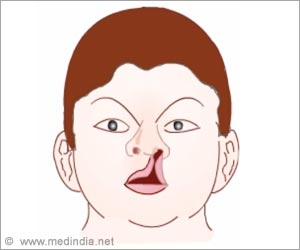A novel gene responsible for heart muscle disease and chronic heart failure in some children and adults with dilated cardiomyopathy (DCM) has been identified
A novel gene responsible for heart muscle disease and chronic heart failure in some children and adults with dilated cardiomyopathy (DCM) has been identified by researchers in the Heart Institute at Cincinnati Children's Hospital Medical Center.
Mutations in the ANKRD1 gene may cause DCM, which is the most common cause of chronic heart failure in young people and the most common reason for heart transplant. ANKRD1 is a gene that encodes a protein that plays a role in the structure and functional ability of the heart.The study, conducted internationally, is published in the July 21 issue of the Journal of the American College of Cardiology, which goes online July 13.
"Our study indicates that variants in ANKRD1 result in dysfunction of the contraction apparatus and signaling machinery of the heart – the method by which cells communicate to influence heart function," says Jeffrey Towbin, M.D., co-director of the Heart Institute and director of cardiology at Cincinnati Children's. "This clarifies the mechanisms by which these inherited mutations cause disease in a subset of DCM patients."DCM is a condition in which the heart becomes weakened and enlarged and cannot pump blood efficiently. The decreased heart function can affect the lungs, liver, kidneys and other body systems. DCM is one of the cardiomyopathies, a group of diseases that primarily affect the heart muscle. Cardiomyopathies have different causes and affect the heart in a variety of ways. In DCM the major pumping chamber of the heart, the left ventricle, is dilated, often without any obvious cause. DCM occurs more frequently in men than in women and is most common between the ages of 20 and 60 years, although it also occurs in fetuses, newborns and children. About one in three cases of congestive heart failure is due to DCM, which also occurs in children.Dr. Towbin and his colleagues screened 208 patients, mostly children and young adults, with DCM for gene mutations. They found three, disease-associated variants of the ANKRD1 gene. All four patients carrying the variants were male. This prevalence rate is consistent with prevalence data for most of the other known genes associated with DCM. This finding confirms previous gene discoveries by Dr. Towbin's group. It also "provides us with a better understanding of the causes and mechanisms involved in the development of this disease and will enable better genetic testing and new treatments to be devised to improve outcomes of this serious disease," according to Dr. Towbin.
Source-Eurekalert
RAS












